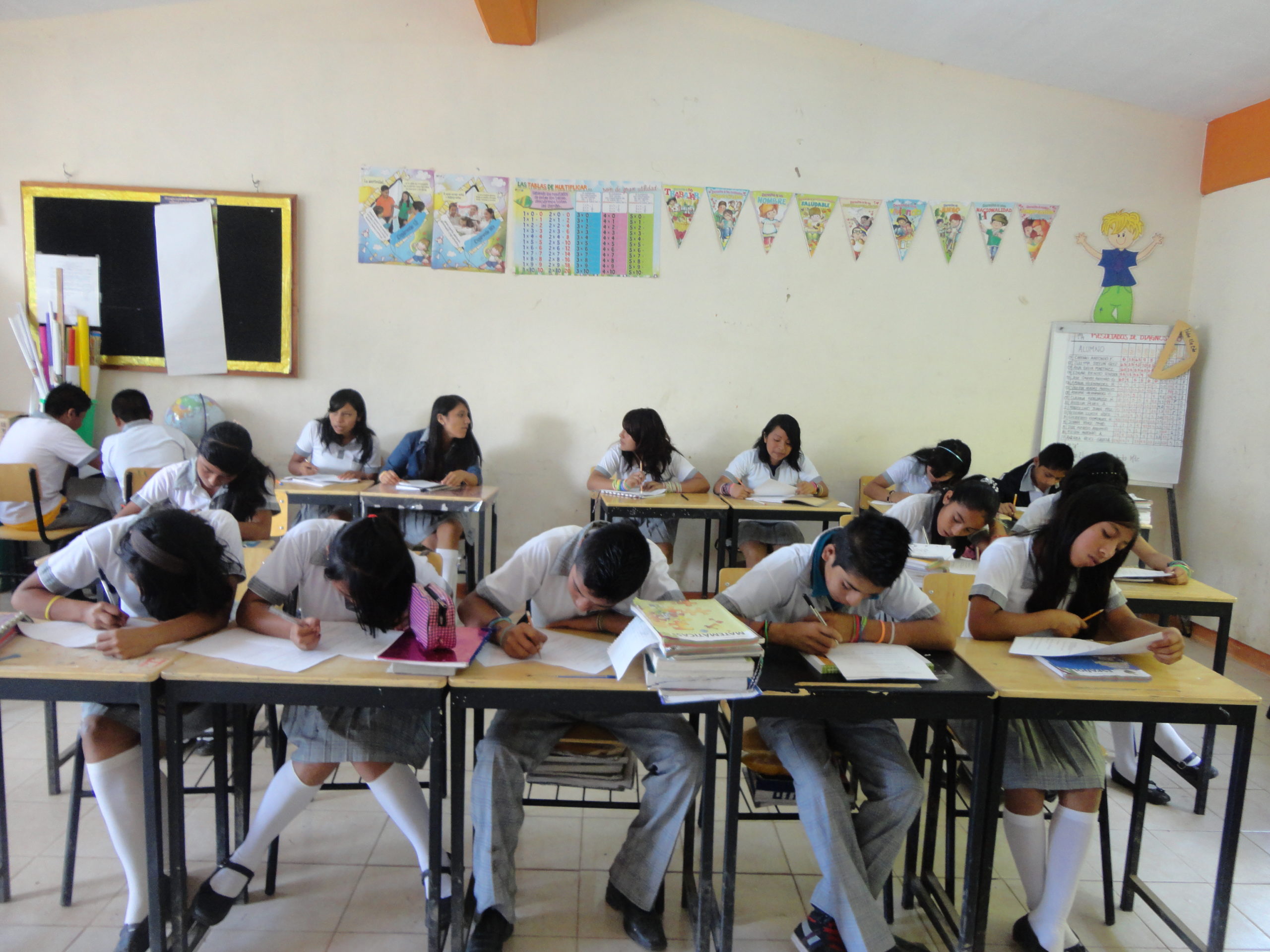Guest post by Kristian Skrede Gleditsch, Mauricio Rivera, and Barbara A. Zarate-Tenorio
Many scholars have suggested that education can reduce crime, either by changing individual values or incentives, by integrating individuals more tightly into their communities, or by reducing exposure to opportunities for participating in crime. In a recent study, we find evidence that education can indeed reduce violent crime as measured by homicide rates, drawing on data from Mexico.
At first glance, Mexico might seem an odd case to study decreases in violence, given the widespread and severe violence arising from the so-called drug war, which followed a 2006 government initiative to crack down on drug trafficking and eliminate cultivation. Estimates suggest there were over 100,000 known organized crime-related homicides between 2007–2018, and more than 100,000 individuals reported missing. In 2015, the magazine National Interest described Mexico as a failed state.
Yet, the overall long-term trend in homicide in Mexico is on a dramatic decline. Data from the Mexican Institute of Statistics and Geography (INEGI) demonstrate a clear decline in homicide rates since 1940—from a record high of 67 per 100,000 inhabitants to a low of 8.24 in 2007. Over this period, access to education expanded dramatically; whereas more than 40 percent of the population over 5 had not completed a single year of school in 1960, school attendance by children aged 6–14 exceeded 96 percent in 2015.
Declines in homicides can be driven by a host of social changes, including overall economic development and improvements in governance. But the key for Mexico was a reform that introduced compulsory secondary education in 1993. The reform substantially increased attendance in secondary education, from 66 percent in 1992 to 84 percent in 2000, with over half of the increase in three years immediately after the reform. Since the reform was intended to increase economic competitiveness and not a response to crime, it allows us to trace the effect of a large increase in education on homicide and better establish a causal effect. We also show that the changes cannot be attributed to the economic effects of other reforms or the North American Free Trade Agreement.
The evidence from Mexico mirrors research from high-income countries that shows that education reduces crime, including in advanced democracies such as the US. The same mechanisms that translate education into reduced crime also appear to apply to countries with emerging economies and less than fully competitive political institutions or responsive governance. Data from UNESCO indicate a dramatic global increase in educational enrollment since the 1970s, and countries in Latin America such as Colombia, Honduras, and Guatemala have seen large reductions in homicide rates, even if they remain at high absolute levels from a global perspective.
Investment in education does not just increase human capital and private returns for the better educated; it can also provide important broader social benefits. Since high crime is likely to deter business and commercial activity, education policies can have an important indirect positive effect on private investment and business through improved public safety.
Despite the success of Mexico’s education reforms at reducing violent crime, the drug war has reversed the decline in homicide and brought homicide levels back up to where they were in the early 1990s: 19.1 per 100,000 inhabitants in 2010. However, the types of homicide have also changed notably, with a decline in interpersonal violence and an increase in homicide arising in the context of armed confrontations between drug cartels and/or the state. Education has limited effects on homicide in the context of drug-related organized criminal violence, which is shaped by incentives to sell drugs, the availability of arms, and government law enforcement capacity.
Many Latin American countries have turned to coercive mano dura or zero-tolerance policies to confront high crime and homicide. But deterring future crime by punishing today’s criminals is only one strategy. As Tony Blair noted in his famous 1995 speech to the UK Labour Party conference, it is necessary to be both tough on crime, and on the causes of crime.
We believe that welfare policies—early-childhood programs, health, and social security—can help to mitigate important causes of crime and violence in the context of the Mexican drug war. Welfare provisions in Mexico remain limited, with no national unemployment insurance, and social spending is below the average for Latin American countries. But evidence from OECD countries shows that early-childhood programs and more generous welfare programs (unemployment benefits, for example) can help to lower crime. Improved support and opportunities in the formal sector can reduce the short-term material incentives to engage in crime and increase the social barriers to colluding with organized crime. There is also evidence from Mexico that targeted interventions can help prevent recidivism by former convicts. The non-governmental organization La Cana, for example, seeks to rehabilitate young detainees and break the cycle of future violent crime through job-related skills training. Similar efforts could be scaled-up at the national level.
From this perspective, future prospects for Mexico need not be as bleak as often postulated. After assuming power in 2018, president Andres Manuel Lopez Obrador vowed to increase welfare spending and reduce poverty to stop violence, calling for abrazos no balazos—hugs not bullets. The government has so far failed to reduce violent crime, and its national security strategy has continued to rely on armed confrontation rather than social support. The broader ambitions for social reforms have yet to materialize.
If violence simply begets more violence, then Mexico might seem in a hopeless situation. But our evidence on the effect of expanding education and the impact of welfare policies supports a more optimistic outlook for Mexico, even more so if Lopez Obrador can convert his slogan into effective policies.
Kristian Skrede Gleditsch is Regius Professor of Political Science at the University of Essex and a Research Associate at the Peace Research Institute Oslo (PRIO). Mauricio Rivera is a Senior Researcher at the Peace Research Institute Oslo (PRIO). Barbara Zarate-Tenorio is a Visiting Researcher at the Norwegian Social Research Institute (NOVA), OsloMet.







